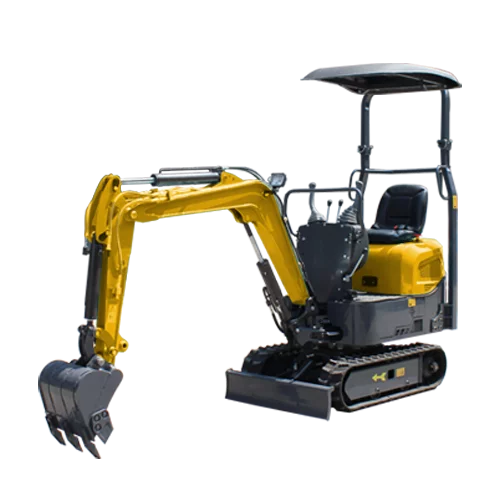Willkommen auf meinem Blog!
Bevor wir in den Inhalt eintauchen, würde ich mich freuen, wenn Sie mir auf meinen Social-Media-Plattformen folgen würden, wo ich weitere Einblicke gebe, mich mit der Community austausche und Updates poste. Hier erfahren Sie, wie Sie mit mir in Kontakt treten können:
Facebook:https://www.facebook.com/profile.php?id=100087112105480
LinkedIn:https://www.linkedin.com/showcase/99327366/admin/dashboard/
Lassen Sie uns nun unsere gemeinsame Reise beginnen. Ich hoffe, Sie finden die Inhalte hier aufschlussreich, ansprechend und wertvoll.
Inhaltsübersicht
Einführung

When it comes to construction equipment, one of the most versatile and reliable machines is the small excavator. Compact yet powerful, small excavator machines have become indispensable on construction sites where space is limited, and efficiency is crucial. These machines are designed to handle a variety of tasks, from digging trenches to demolishing structures. In this blog post, we’ll explore the top six benefits of using small excavator machines for construction projects, shedding light on why they are an excellent investment for contractors and builders.
Versatility and Multifunctionality of Small Bagger Machines
Small excavator machines are not just for digging; they offer a wide range of functionalities that can make a huge difference on construction sites. With the ability to attach different tools and accessories, such as hydraulic breakers, augers, and grapples, small excavators can easily adapt to various tasks. Whether you need to dig foundations, lift heavy materials, or clear debris, a small excavator can do it all.
The versatility of these machines reduces the need for multiple pieces of equipment, saving both money and space on the site. Additionally, small excavators are designed for easy attachment and detachment of various implements, allowing for quick changes depending on the job requirements.
Enhanced Maneuverability and Access to Tight Spaces
Construction projects often take place in environments with limited space, especially in urban settings. The small size of excavators makes them perfect for navigating narrow alleys, tight corners, and small job sites. Unlike larger machines, small excavator machines can easily maneuver in restricted areas, ensuring that work progresses smoothly without compromising on safety or efficiency.
This ability to access tight spaces makes small excavators ideal for residential, landscaping, and even demolition work where other machines may struggle to fit. Their compact design allows them to work in areas that would otherwise be inaccessible, making them incredibly valuable in city-based construction projects.
Increased Fuel Efficiency and Lower Operating Costs

One of the key advantages of small excavator machines is their fuel efficiency. Smaller engines consume less fuel than larger counterparts, helping reduce operational costs. With rising fuel prices, the ability to lower fuel consumption is a significant benefit for construction companies looking to maximize profitability.
In addition to being fuel-efficient, small excavators have lower maintenance costs compared to larger machines. With fewer moving parts and simpler systems, small excavators require less frequent repairs and servicing, reducing long-term maintenance expenses.
Improved Productivity and Speed
Despite their size, small excavator machines are designed to be powerful and efficient. With faster cycle times and enhanced digging capabilities, they can complete tasks quickly and efficiently. The advanced hydraulics and precision controls enable operators to work with high accuracy, reducing errors and improving overall productivity.
In fast-paced construction environments, time is money. Small excavators allow for more work to be completed in a shorter period, increasing overall productivity and helping to meet tight project deadlines.
Ease of Transport and Storage
One of the challenges with larger machinery is the difficulty in transporting them between job sites. Small excavators, on the other hand, are much easier to transport. Their compact size allows them to be loaded onto flatbed trucks without the need for special permits or oversized loads.
Additionally, small excavators require less storage space when not in use. Whether you’re keeping them on a job site overnight or in a storage yard, their smaller footprint ensures that they don’t take up unnecessary space.
Safety Features and Operator Comfort

Safety is always a top priority on construction sites, and small excavator machines are equipped with features that enhance both operator safety and comfort. Many modern small excavators come with advanced safety systems, such as roll-over protection, adjustable tracks for stability, and improved visibility from the operator’s cabin.
Furthermore, the ergonomic design of the operator’s cabin provides comfort during long working hours. Features such as adjustable seats, air conditioning, and intuitive control systems reduce operator fatigue, allowing for more focused and efficient work.
Table: Key Features of Small Excavator Machines
| Merkmal | Nutzen Sie |
|---|---|
| Kompakte Bauweise | Ideal for confined spaces and narrow job sites |
| Vielseitigkeit | Can be equipped with various attachments for different tasks |
| Treibstoff-Effizienz | Lower fuel consumption compared to larger machines |
| Leichtigkeit des Transports | Can be easily transported between job sites |
| Bedienerkomfort | Ergonomically designed cabins with reduced fatigue |
Schlussfolgerung

Small excavator machines are a game-changer for construction projects, offering a perfect balance between power, efficiency, and convenience. Their ability to work in tight spaces, versatility in applications, and fuel efficiency make them invaluable for both large and small construction companies. Additionally, their low operating costs and ease of transport add to their overall appeal, ensuring they remain a top choice for many contractors. By investing in a small excavator, you’re making a smart decision that will enhance productivity and streamline your construction operations.
FAQ
What tasks can a small excavator machine perform?
A small excavator machine can handle a variety of tasks, including digging, grading, lifting, demolition, and material handling. With the right attachments, they can be used for trenching, drilling, auguring, and even lifting heavy materials.
Are small excavators more cost-effective than larger machines?
Yes, small excavators are generally more cost-effective. They have lower fuel consumption, reduced maintenance costs, and are easier to transport. While they may not have the power of larger excavators, their versatility and efficiency make them a great choice for many construction tasks.
How do I choose the right small excavator machine for my project?
When selecting a small excavator, consider factors such as the size of the job site, the types of tasks you need to perform, the weight of the materials you’ll be handling, and your budget. It’s also important to look at the machine’s fuel efficiency, lifting capacity, and operator comfort.
Can small excavators be used for landscaping projects?
Absolutely! Small excavators are perfect for landscaping projects due to their ability to access tight spaces, their versatility in handling different attachments, and their compact size, which allows them to work in residential areas.
How long do small excavator machines typically last?
With proper maintenance, small excavator machines can last for many years. On average, these machines can operate for around 5,000 to 7,000 hours, but this can vary depending on usage, maintenance, and the manufacturer.
